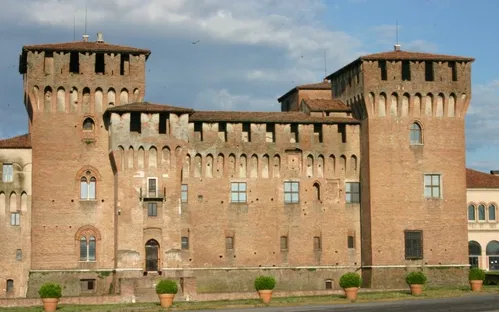Castello di San Giorgio and its collection
The Castello di San Giorgio is a significant monument in the city of Mantua and forms part of the Reggia dei Gonzaga. This castle was built on the ruins of the church of Santa Maria di Capo di Bove, starting in 1395 and completed in 1406. It was commissioned by Francesco I Gonzaga and designed by Bartolino da Novara. The castle is a square building with four corner towers and surrounded by a moat with three gates and corresponding drawbridges, aimed at defending the city.
Isabella d'Este and the Renaissance Court
The Castello di San Giorgio served as the residence of Isabella d'Este, wife of Francesco II Gonzaga, for many years. Isabella d'Este is recognized as one of the most famous noblewomen of the Renaissance. She invited numerous artists and humanists of the time to the court, such as Andrea Mantegna, Perugino, Leonardo da Vinci, Ludovico Ariosto, and Baldassarre Castiglione, making Mantua a major European court and artistic and literary center.
The Camera Picta (Camera degli Sposi)
One of the highlights of the Castello di San Giorgio is the Camera Picta, also known as the Camera degli Sposi. This magnificent room is located on the main floor of the north-east tower of the castle and is the work of the renowned artist Andrea Mantegna. Mantegna created this masterpiece over a period of nine years, from 1465 to 1475. The room is designed in such a way that it gives the illusion of being in an open-air loggia, with each wall divided into three openings that offer views of bucolic landscapes and curtains moved by the wind.

